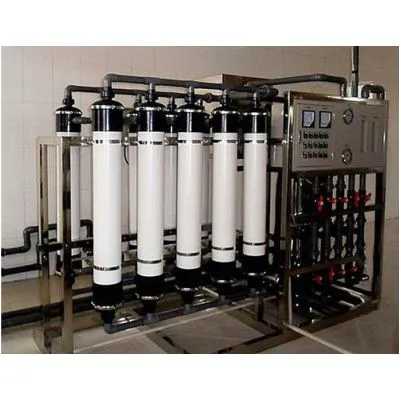Ultra Filtration
Ultra Filtration
Ultrafiltration (UF) is a membrane filtration process that removes particles, bacteria, and larger molecules from water by passing it through a semi-permeable membrane. It is commonly used in water purification and wastewater treatment to produce high-quality water.

What happens in Ultra Filtration?
Ultrafiltration is a filtration process that occurs in both biological and industrial systems. In the human body, it is a key function of the kidneys, where blood plasma is filtered in the glomerulus. Here, high blood pressure forces water, small solutes (like glucose, salts, and urea), and other substances through a semi-permeable membrane into the Bowman’s capsule. Larger molecules like proteins and blood cells are too large to pass through and remain in the bloodstream. This process ensures waste removal while retaining essential molecules.
Whether in the kidneys or industrial systems, ultrafiltration relies on a pressure-driven mechanism and selective membranes to perform precise separation. In biological systems, it supports essential bodily functions, while in industrial settings, it provides a cost-effective and versatile method for improving product quality and environmental sustainability.
Advantages
- Unlike some filtration methods, ultrafiltration does not require chemical additives, ensuring safer processes , reducing environmental impact.
- Ultrafiltration achieve precise separation at relatively low pressures,making it energy-efficient while maintaining a high output of purify liquid.
- It is applicable in various industries, such as food and beverage processing, pharmaceuticals, and water treatment, demonstrating its wide range of uses.
- In applications like food and beverage processing, ultrafiltration selectively removes impurities while retaining essential nutrients,and beneficial components.
- Ultrafiltration systems have minimal moving parts, reducing the likelihood of mechanical failure and making them easy to maintain with routine cleaning.
